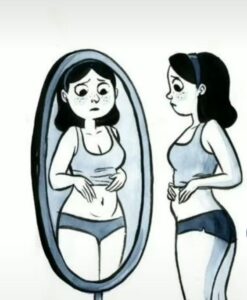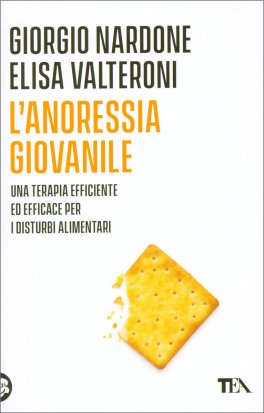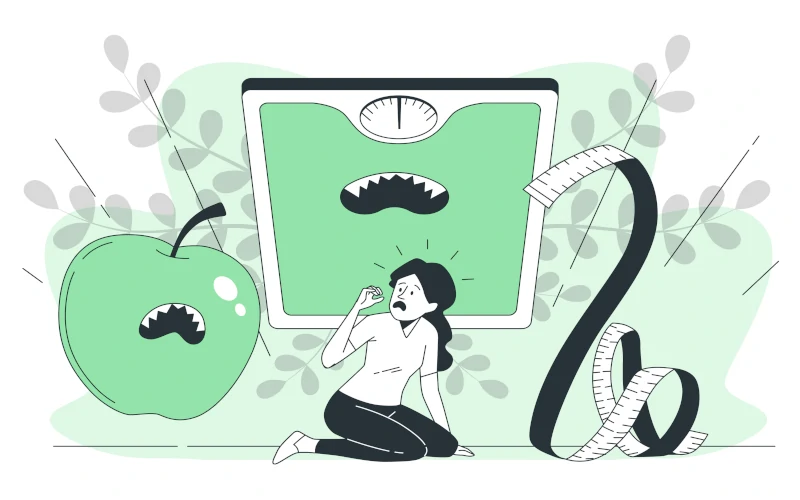Hunger for love
Last night, taking advantage of one of the colder early evenings, I watched a Rai3 program that I had also followed in previous seasons.
I usually don't like to follow TV but "Hungry for Love" is a very different program from others, and it deals with difficult issues such as eating and mental disorders in adolescents in an engaging way.
You can also see it by downloading the App of the https://www.rai.it/
https://www.raiplay.it/programmi/famedamore
The stories of these brave young people are told by those directly involved to Francesca Fialdini.
https://www.instagram.com/francifialdini/?hl=it

She, in each episode, confronts the "patients," visits them at their places of care, spends time with them, talks to the doctors on the support staff, their families, and friends.
In this way, the viewer becomes very closely involved, with great sensitivity, in their lives and learns about them by observing them with an eye that is never judgmental, but always careful to go deep and understand how, at some point, this can happen and why it occurs in such a disruptive and dramatic way to their existence to the point of overwhelming it.
Why do seemingly happy kids, in some cases, come to harm themselves so much to the point of risking their own lives? Why does eating and feeding themselves turn from a pleasant and happy occasion for them into a nightmare?
The goal of "Hunger for Love" is precisely to uncover these mechanisms, and to do so it hosts in each episode the stories of many patients who face these sufferings, so difficult to treat but also faced with equal courage on a daily basis to heal, in highly specialized clinics.

One of these is precisely The Auxological Hospital. Piancavallo, where the program has been going for years to tell the many stories of young people there hospitalized with serious eating disorders.
https://www.auxologico.it/riabilitazione-disturbi-alimentari-nutrizione#malattie
Raising awareness of the existence of facilities such as this one makes it possible to give a fundamental point of reference to people who would otherwise feel totally abandoned to their fate; now that teenagers are feeling more than ever challenged, lost and without a point of reference that can instill hope.
A sneaky phenomenon, in fact, affecting millions of people, and greatly exacerbated by the pandemic and the social isolation and pressures that younger people have been experiencing for months on end.
These are the stories of girls and boys who struggle to get out of their "tunnel" of anxieties, fears, and hopes, going deep into what goes on in the minds and souls, lives and families of those who fall ill with these eating disorders.
The role of the family in the onset of these disorders
Yeah, the family...that wonderful entity from which everything starts and to which everything seems to lead back to, the family that for these kids has to step aside so they can be left free to go to these highly specialized facilities for treatment.
We can read it in the eyes of so many brave young people who take part in the show: being in the clinic is heavy and going there must have been very difficult for everyone, but doing it is the only way they can give themselves a chance.
Theirs is a long journey made up of both physical and psychological rehabilitation, both of which are essential to snatch them away from death; putting physical distance from home, friends, and family is the last attempt to save one's life and psychic integrity.
The question then arises as to how much the family and the environment around them affected the development of certain pathologies. Certainly the link with family experience is crucial.
From the protagonists' stories, a difficult family atmosphere often emerges, bonds that failed to make young people feel valued and loved or understood enough.
Increasingly fragmented and lonely families, parents more committed to dealing with their personal difficulties than to educating their children; families with histories of degradation and neglect, where one of the parents is perpetually absent or abusive.
Slimming down, getting to weigh as much as 38 kg or less and thus taking up less space. This becomes in some cases the only way to be able to externalize one's discomfort until it becomes a concrete request for help that will be taken care of by competent people. Making oneself less cumbersome to the point of disappearing because, only through this slow suicide, do others come to realize that the person is experiencing a discomfort that alone is no longer able to face and overcome. Or eating to expand and be noticed more but to make more distance between ourselves and others. All sides of the same coin that is also encapsulated in the name of the program: Hunger for Love.
Among all the stories followed, I was particularly struck by the story of Elena who has been suffering from a very severe form of anorexia for many years; Elena was interviewed not only in the clinic but also in her home near her parents.
It really struck me because I saw a girl who on the hospital bed was letting her emotions flow, hugging the other girls, talking to the caregivers while at home she stiffened, put distance and had more difficulty expressing herself. I thought, how is it possible that she appeared more comfortable and relaxed while being admitted to an aseptic room in the clinic? It is noticeable as if relationships became more formal in the family than in the hospital, as if she lacked empathy and spontaneity....
Of course each story, each person is a world of its own and one cannot generalize but as a common thread in most of these realities there always recurs a great difficulty in trusting and opening up in the family, precisely with those who should know us best and who eventually have to step aside and let therapists and doctors work; these then take over for an unspecified period of time the role of educators and become for all a fundamental point of reference. Stepping aside so as not to lose their child forever. This for many parents in such cases is the only gesture of love they can make.

Listening carefully to their experience always brings out a past that has marked and tested them; a trauma or a difficult family situation, here then the mind and body begin to manifest the sufferings that their Soul for years has tried to hide but at some point they come out into the sunlight and cry out to be heard but often in the same family or social environment these cries are not answered properly.
Eating disorders are not illnesses of a single individual, they are illnesses of families and our whole society, and in order to deal with them, the treatment tools cannot be limited to psychological and eating therapies but need, above all, the following understanding e love.
But how do these deep hardships come about? They do not come randomly but always have a common background with serious histories of suffering.
To come out healed, they must rebuild their bodies, but before they can do so, they must make peace with their past, their wounded Soul.
Just as with immune system disorders, the ones we have been observing for the longest time in our Blog, namely autoimmune diseases, the origin for these serious eating disorders also finds its roots in the past, especially in problematic and often "denied" childhood, that wonderful season of life when our Soul muscles are trained and when our sensitivity is shaped according to the positive or negative experiences we have had.
On the subject, I invite you to read these blog articles:
https://wellnessere.com/infanzia-negata-e-malattie-autoimmuni/
https://wellnessere.com/infanzia-fotografia-di-tutta-la-nostra-vita/
Reading recommendations on the topic:
 | Psychoanalysis and eating disorders € 24,50 |
Very interesting book by Prof. Nardone
https://giorgionardone.com/it/
 | Efficient and effective therapy for eating disorders € 12,00 |
These common themes led the fourth edition of the show, , which resumed two weeks ago, not to limit itself to eating disorders but to broaden its scope to investigate all those mental problems that are registering unprecedented levels especially among young people, such as depression, anxiety, self-harm, drug and medication addiction.
The "enemy" of young people is no longer just food. We will come back to talk about it because the more it is talked about, the fewer people will be left alone.





